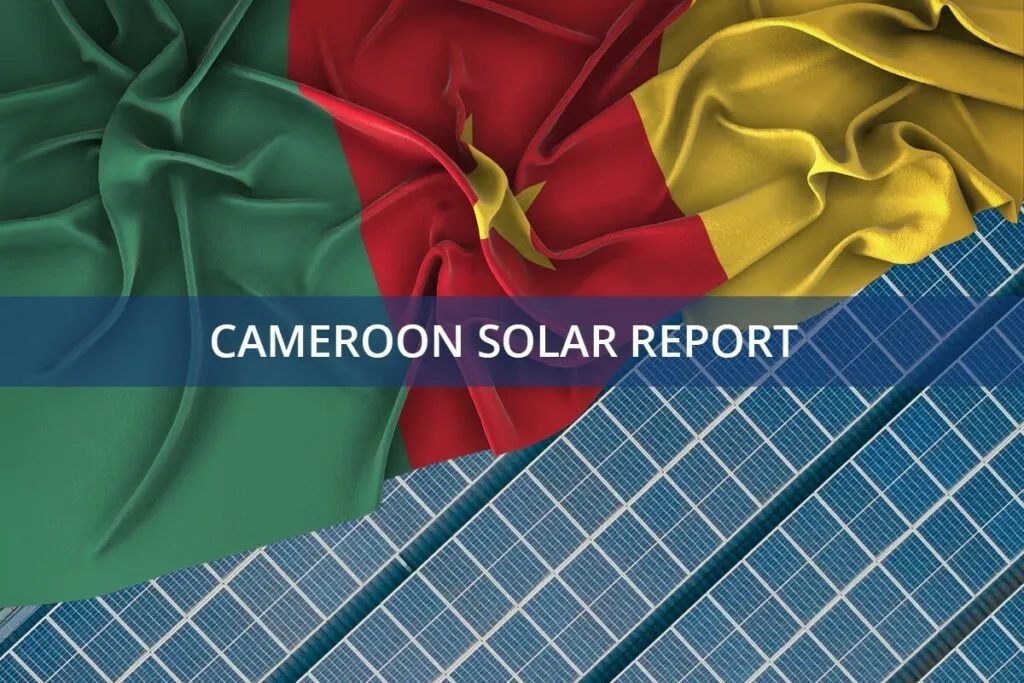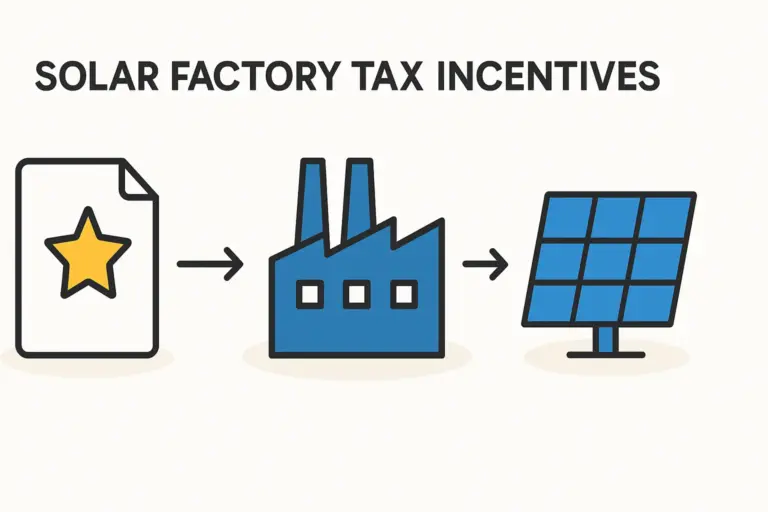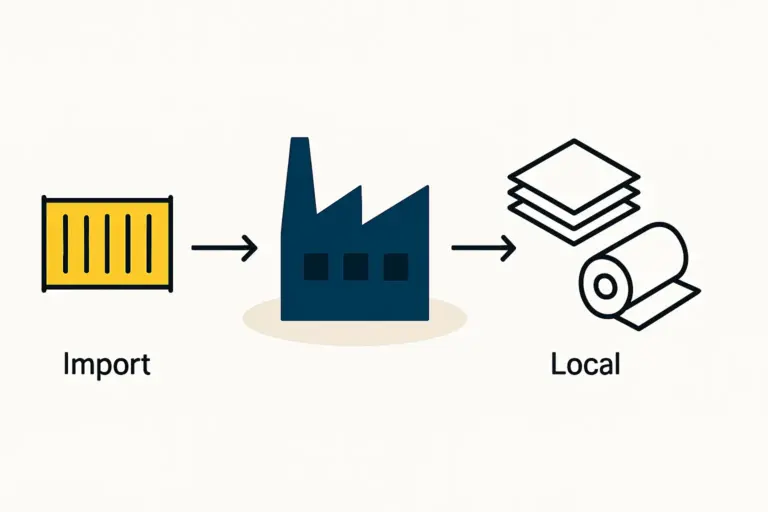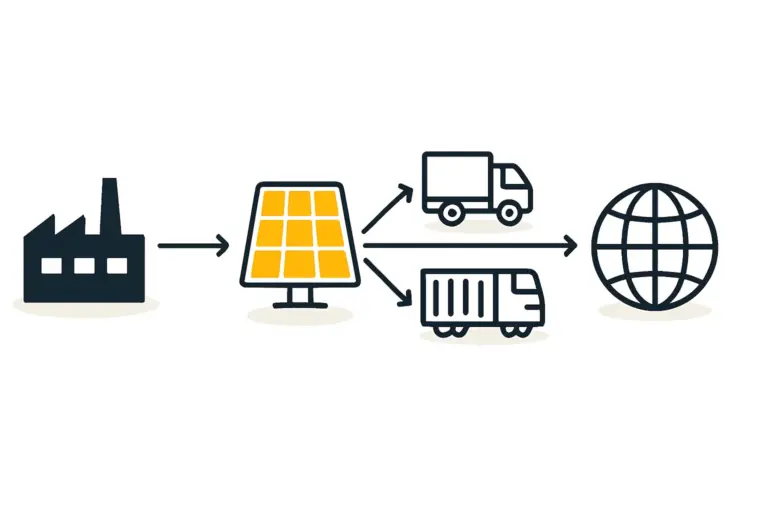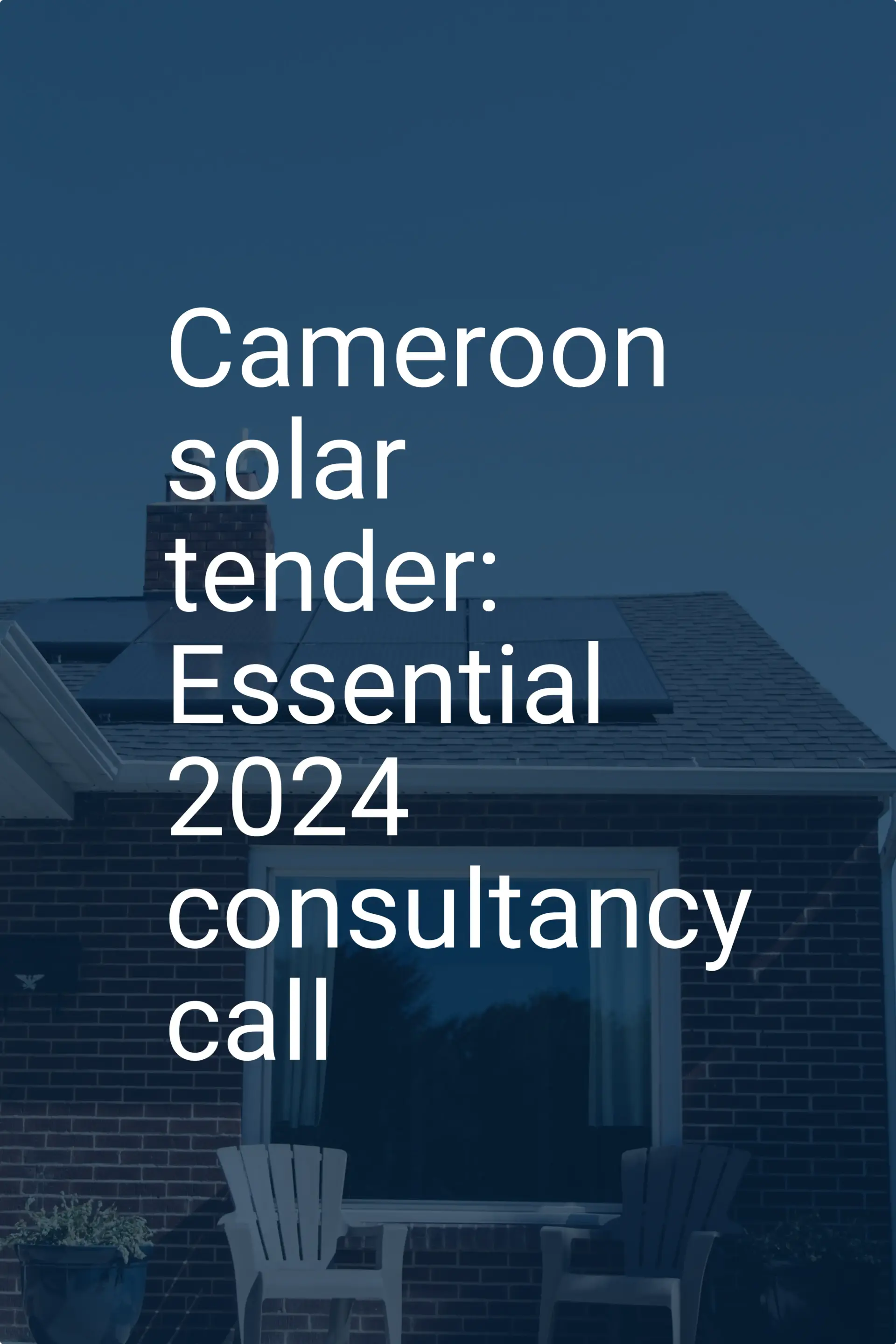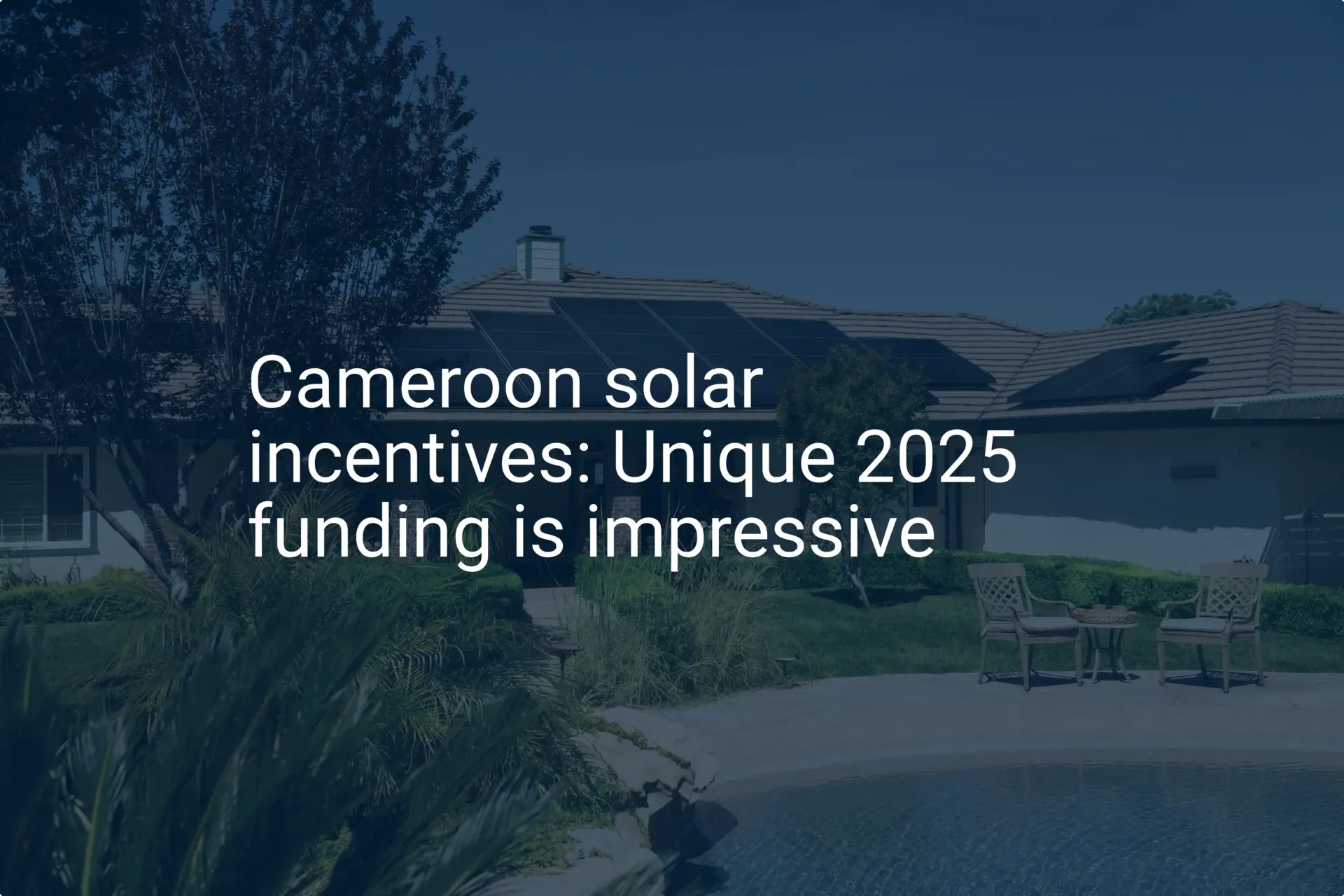Many entrepreneurs planning to enter the solar manufacturing sector focus intensely on machinery specifications and financial models. While these elements are critical, a more fundamental factor often dictates a project’s timeline and viability: securing a suitable plot of land.
In jurisdictions like Cameroon, navigating the complexities of land acquisition and industrial zoning is not merely a formality; it is the very foundation of the enterprise. A misstep here can lead to significant delays and unforeseen costs long before the first piece of equipment arrives.
This guide offers a practical overview of the legal framework and common procedures for acquiring industrial land in Cameroon. It is designed for business professionals who recognize that a successful factory starts not with a machine, but with a secure and properly zoned piece of ground.
Table of Contents
The Foundation: Understanding Cameroon’s Land Tenure System
Understanding the legal landscape is the first step in acquiring land in Cameroon. The system is primarily governed by the 1974 Land Tenure Ordinances and divides land into two main types, each with distinct implications for an industrial investor.
National Domain Land
This is the default category for all land that has not been officially titled and is considered state property. An investor can acquire rights to use this land through a concession granted by the state. The process typically involves:
- Application: Submitting a project proposal and application to the relevant authorities.
- Provisional Concession: If approved, the state grants a temporary lease, usually for around five years, allowing the investor to develop the land according to the project plan.
- Final Title: Once the development commitments are met (e.g., construction of the factory), the investor can apply for a final, permanent land title.
This path can be advantageous for large-scale projects requiring significant acreage. However, it involves a lengthy administrative process and carries the risk that the final title will not be granted if development milestones are not achieved.
Private Titled Land
This category includes land already registered in the name of a private individual or entity with a formal land title (Titre Foncier). Acquiring this type of land is typically more straightforward, resembling a standard real estate transaction conducted through a notary. While often more expensive, it offers immediate security and ownership, which is crucial for securing financing and protecting a multi-million dollar investment.
For a capital-intensive project like a solar module factory, pursuing privately titled land is often the wiser choice, as it eliminates the uncertainty associated with the concession process.
A Practical Roadmap for Acquiring Industrial Land
The process of securing a site involves more than just a financial transaction. It requires careful due diligence and adherence to key administrative steps.
Step 1: Identifying Suitable Industrial Zones
The government of Cameroon, through the Ministry of Mines, Industry and Technological Development (MINMIDT), has designated specific zones for industrial activities. These areas, often located near major economic hubs like Douala and Kribi, are designed to provide the infrastructure needed for manufacturing. Focusing your search within these zones can simplify subsequent zoning and permitting processes.
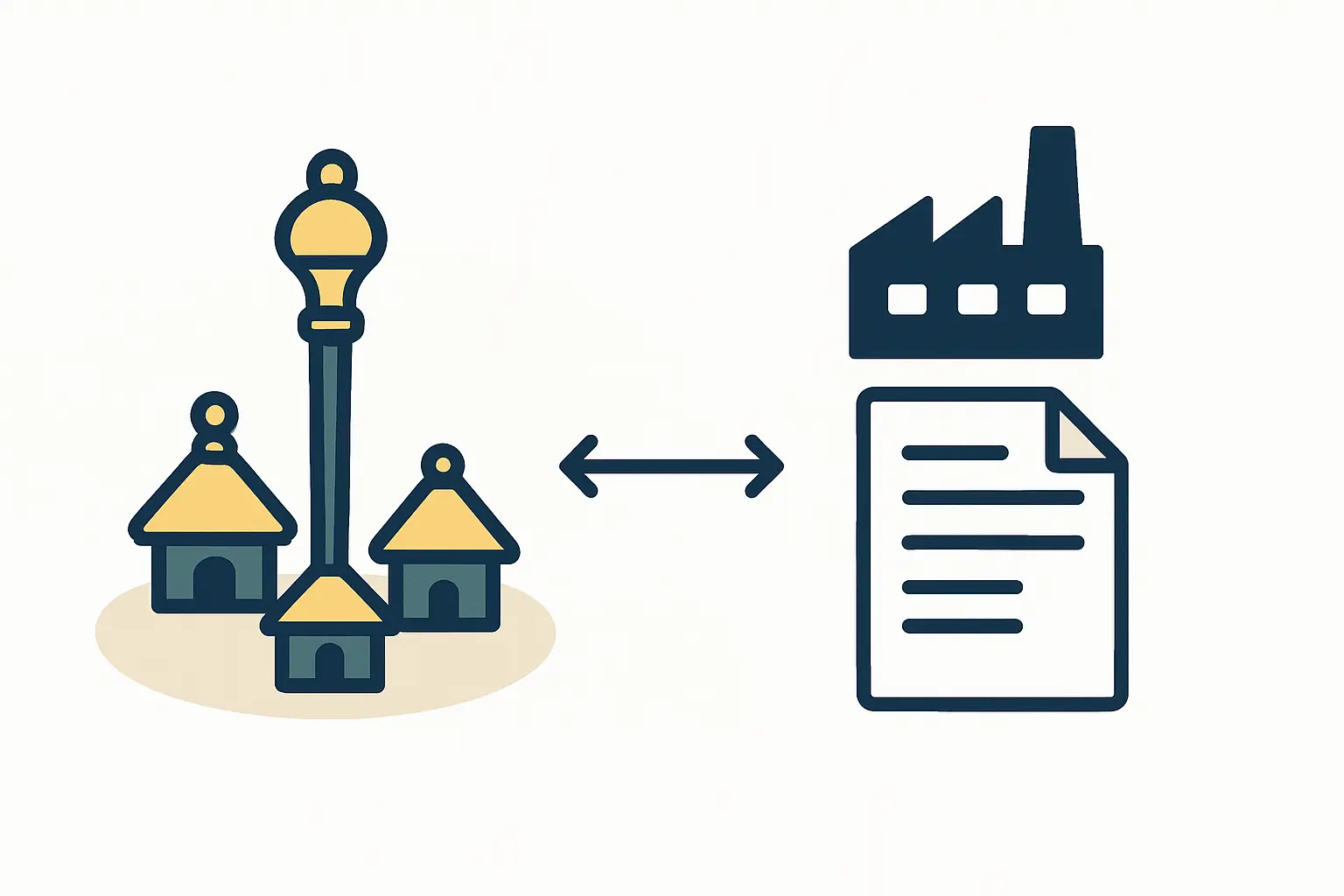
Step 2: Due Diligence and Title Verification
This is the most critical step in the acquisition process. Before any agreement is signed, a thorough verification of the land title must be conducted at the regional land registry (Conservation Foncière). This process, best handled by a reputable local notary (notaire), confirms:
- The legal owner of the property.
- The exact boundaries and registered size of the plot.
- Whether any liens, mortgages, or legal disputes are associated with the land.
Verifying that the plot meets both physical and legal requirements is essential for the facility’s long-term success. A detailed examination of factors like soil stability, access to utilities, and logistical feasibility is a key part of the broader solar factory building requirements to consider at this stage.
Step 3: The Transaction and Title Transfer
For private land, the purchase is formalized through a deed of sale (acte de vente) executed by a notary. The notary then handles the process of canceling the old title and issuing a new one in the buyer’s name. This transfer officially records the new ownership in the state’s land book, providing the highest level of legal security for the asset.
From Land Title to Building Permit: The Regulatory Pathway
Possessing a land title is a prerequisite, but it marks only the first step in the regulatory process. To legally construct a factory, an investor must also navigate urban planning and environmental regulations.
Securing the Building Permit (Permis de Bâtir)
The building permit is issued by the local municipal or city council (Communauté Urbaine). Obtaining the permit requires submitting a comprehensive file that typically includes:
- A certified copy of the land title.
- Detailed architectural and structural plans, certified by a locally registered architect or engineer.
- A geotechnical study of the soil.
- An Environmental and Social Impact Assessment (ESIA).
Local authorities often require a well-structured business plan to demonstrate project viability. A clear understanding of the complete investment for a solar module production line is critical when preparing this documentation and demonstrating the project’s seriousness to regulators.

Environmental and Social Impact Assessment (ESIA)
An ESIA is mandatory for any industrial project. This study, conducted by a certified consultant, evaluates the potential environmental and social impacts of the factory and outlines mitigation measures. The report must be approved by the Ministry of Environment, Nature Protection and Sustainable Development (MINEPDED) before a building permit can be issued. This step underscores the government’s commitment to sustainable industrial development.
Anticipating Hurdles: Insights from Experience
Based on experience with J.v.G. turnkey projects in emerging markets, several common challenges can arise during the land acquisition and permitting phase.
- Title Disputes: Land with multiple claimants or unresolved inheritance issues is not uncommon. Rigorous due diligence is the only safeguard against this risk.
- Administrative Delays: The processes for title transfer, permit approval, and environmental clearance can be lengthy. Investors should budget a realistic timeline, often 12 to 24 months, for these pre-construction activities.
- Infrastructure Gaps: A plot may be within a designated industrial zone but still lack reliable access to electricity, water, or paved roads. A site assessment must verify the actual availability of these critical utilities.
Beyond the physical site, securing a trained local workforce is paramount. The requirements for employees for a solar panel factory must be factored into the site selection process, as proximity to urban centers can greatly influence the availability of skilled labor.

Frequently Asked Questions
Q: How long does it typically take to acquire land and get a building permit in Cameroon?
A: While timelines can vary, a realistic estimate for completing the entire process—from identifying a plot to receiving a building permit—is between 12 and 24 months. This accounts for due diligence, administrative processing, and potential delays.
Q: Can a foreign company own land directly in Cameroon?
A: Yes, a foreign-owned company can own land in Cameroon, provided it is legally incorporated as a Cameroonian entity. Direct ownership by a non-resident individual or foreign-registered company is generally not permitted for commercial land.
Q: What is the difference between a provisional and a final land title?
A: A provisional title is granted under a land concession from the state and is conditional upon the investor developing the property as promised. A final title represents absolute, unconditional ownership and is granted only after development obligations are met. It can also be obtained directly by purchasing privately owned, already-titled land.
Q: Are there investment incentives related to land acquisition?
A: Cameroon’s 2013 law on private investment incentives provides a framework for benefits that can apply to qualifying projects. These may include preferential conditions for long-term leases on state land or other administrative support, depending on the scale and strategic importance of the investment.
Conclusion: A Foundation for Success
Securing the right location for a solar module factory in Cameroon is a complex but manageable process. It demands more than just capital; it requires patience, diligent research, and expert local guidance.
By understanding the legal distinctions between national and private land, performing meticulous due diligence, and systematically navigating the permitting process, an investor can lay a solid and secure foundation. This initial phase, when executed correctly, de-risks the project and sets the stage for a successful manufacturing operation.
For entrepreneurs seeking a structured approach to navigate these early-stage decisions, the resources and courses available through pvknowhow.com offer a comprehensive roadmap from initial concept to operational reality.

